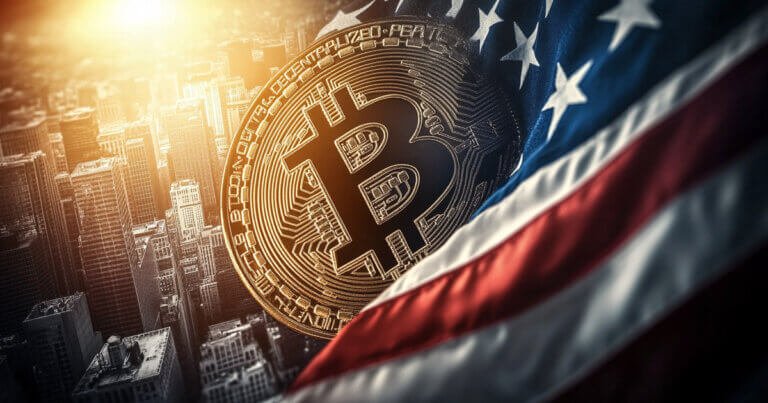In the ever-evolving world of finance, the idea of the United States adopting Bitcoin as a reserve asset has sparked debates among economists, policymakers, and cryptocurrency enthusiasts. While such a move could signal a groundbreaking shift in monetary policy, it is not without significant challenges. As 2024 unfolds, this concept—though intriguing—remains a complex proposition with potential benefits and notable drawbacks.
The Case for a US Bitcoin Reserve
Diversification of Reserves
Bitcoin offers a unique opportunity to diversify national reserves. Traditionally, countries rely on assets like gold, foreign currencies, and government bonds to ensure financial stability. Adding Bitcoin to this mix could provide the United States with a hedge against inflation and the declining purchasing power of fiat currencies. Bitcoin’s finite supply and decentralized nature make it a compelling asset for safeguarding wealth in an increasingly uncertain global economy.
Innovation and Leadership
By adopting Bitcoin as a reserve, the United States could solidify its position as a leader in the global financial system. Such a move would demonstrate a forward-thinking approach to emerging technologies, potentially attracting innovation and investment in the blockchain sector. It could also enhance the country’s influence over the evolving cryptocurrency landscape, setting global standards for digital assets.
Resilience Against Geopolitical Risks
In a world where geopolitical tensions often impact the value of traditional reserve assets, Bitcoin’s apolitical and borderless nature stands out. Unlike fiat currencies, which are subject to manipulation and policy shifts, Bitcoin operates independently of any government. This could provide the US with a more resilient reserve asset that remains unaffected by international conflicts or sanctions.
The Drawbacks of a US Bitcoin Reserve
Volatility Concerns
Bitcoin’s infamous price volatility poses a significant risk for its adoption as a national reserve asset. While it has shown tremendous growth over the years, its value can fluctuate dramatically in short periods. This unpredictability could undermine the stability of US reserves, making it challenging to rely on Bitcoin for consistent financial planning or crisis management.
Regulatory Challenges
The regulatory landscape for cryptocurrencies remains uncertain in 2024. Adopting Bitcoin as a reserve would require comprehensive legislation to address issues like security, custody, and compliance. Furthermore, such a decision might face resistance from policymakers who are wary of endorsing a decentralized asset that could weaken the Federal Reserve’s control over monetary policy.

Environmental Impact
Bitcoin mining’s energy consumption is a well-documented concern. Critics argue that adopting Bitcoin as a reserve could indirectly encourage activities that harm the environment. This could clash with the US’s goals to transition to sustainable energy and reduce its carbon footprint, raising questions about the long-term compatibility of Bitcoin with environmental policies.
Technological Vulnerabilities
Although Bitcoin’s blockchain is highly secure, the technology is not immune to risks. Potential threats include advancements in quantum computing and cyberattacks targeting exchange platforms and wallets. These vulnerabilities could pose significant risks to the security and accessibility of a national Bitcoin reserve.
Practical Implications for Implementation
The adoption of Bitcoin as a reserve asset would likely face mixed reactions from the public and political leaders. Sceptics may view the move as risky or unnecessary, while advocates might see it as a bold step toward financial innovation. Balancing these perspectives will be critical for gaining widespread support.
The practical implications for implementation involve several key factors to ensure success. First, thorough planning is essential to identify potential challenges and allocate resources effectively. Clear communication among stakeholders, including team members, clients, and other relevant parties, is crucial to avoid misunderstandings and ensure alignment with project goals. Moreover, proper training and skill development are necessary for those involved in the execution to guarantee competence and efficiency.
Adapting to unforeseen issues requires flexibility, with contingency plans in place to mitigate risks. Additionally, monitoring progress and evaluating outcomes regularly helps in making data-driven adjustments as needed. Finally, fostering a culture of collaboration and feedback ensures continuous improvement throughout the implementation process. These factors collectively contribute to a smooth and successful implementation, ultimately increasing the likelihood of achieving the desired outcomes.
For More : Bitcoin Purchase Reminder for Wikipedia by Samson Mow
Conclusion
The idea of the United States adopting Bitcoin as a reserve asset is both visionary and fraught with challenges. While it could position the US as a leader in financial innovation, the risks of volatility, regulatory hurdles, and environmental concerns are significant. As the debate continues in 2024, a cautious and measured approach will be crucial to evaluating whether the potential benefits outweigh the drawbacks. Ultimately, the decision to integrate Bitcoin into national reserves should align with long-term economic goals, technological advancements, and global trends.
[sp_easyaccordion id=”5331″]

